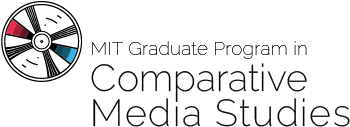New technologies and media systems have been deployed for new distributions of power, knowledge and social organization. What do you see as the most compelling shifts in these sectors? What are the greatest dangers and opportunities, and with what implications?
Factors such as influence over regulatory process, ever-expanding proprietary claims to technology and code, and the control of information including personal data all constitute zones of contention in this time of transition. What techniques and strategies might we use to enhance public literacy and efficacy in these matters?
What role might best be taken up by educators and media specialists when the old certainties slip away? Developing new tools and methodologies to make sense of emerging behaviors? Recuperating lost literacy and cognitive skills? Deconstructing legal and regulatory structures, and pressing for new safeguards? Encouraging the production of new forms of content?
As new generations enter a digital culture that seems ever more taken for granted as a condition—and ever more unfathomable as a technological practice—how can we cultivate and empower a critical citizenry?
Networked digital technologies have been used to construct new collectivities and social formations. What are the most promising of these from your perspective, and what lessons can we take from them as we seek to enable individuals to engage with one another to form active and effective publics?
Transitional moments bring with them inadvertent opportunities, whether new forms of data (hyperlinks, tags, recommendation systems), new standardization paradigms, or new affordances for representation. Although these opportunities can be put to many ends, how might they serve the interests of illuminating shifts in power, improving social equity and enhancing civic engagement?
- Sandra Braman, University of Wisconsin, Milwaukee
- Giuliana Cucinelli, Concordia University
- Richard Rogers, University of Amsterdam
- Moderator: William Uricchio, MIT



